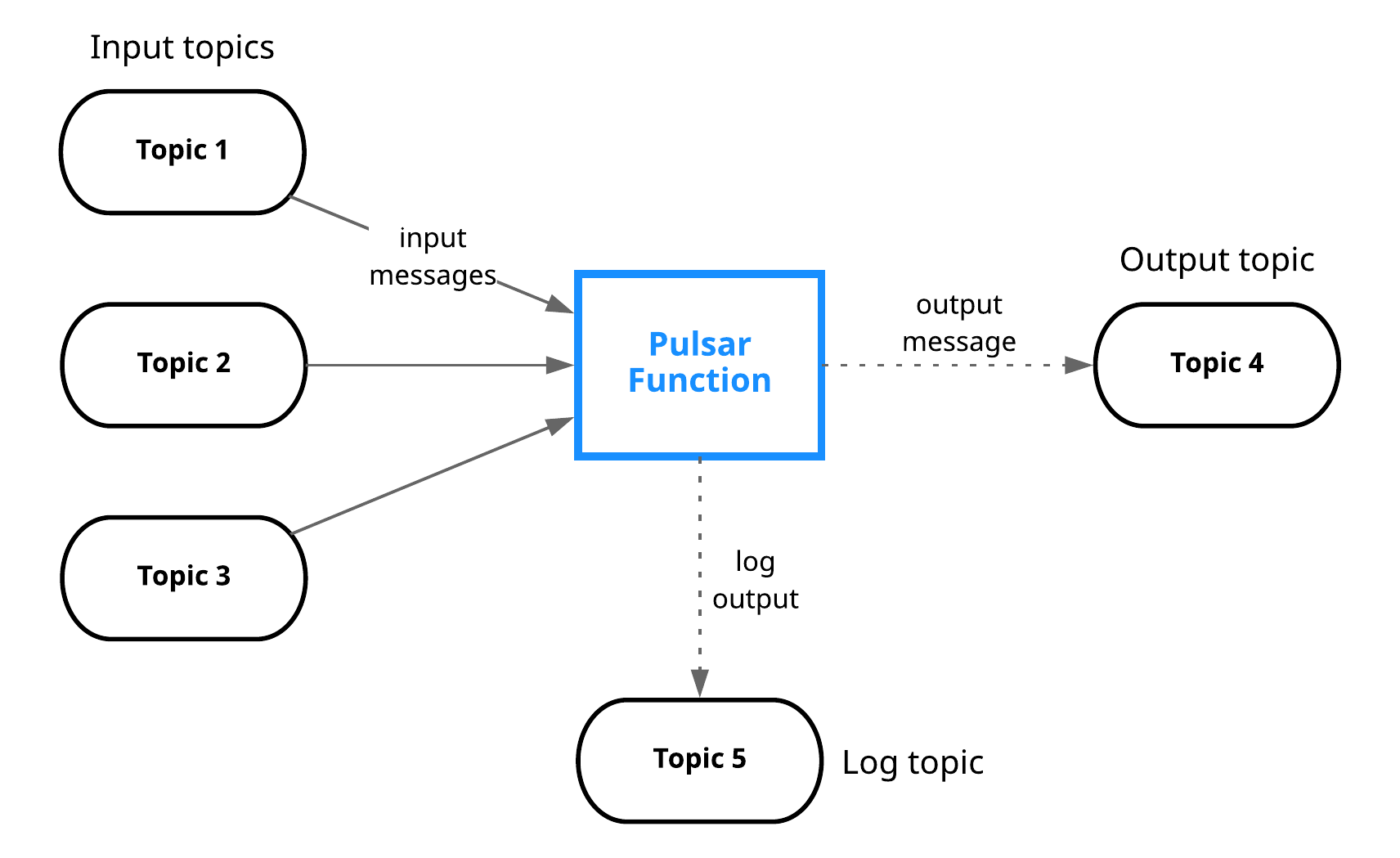Debug Pulsar Functions
This document describes how to debug Pulsar functions through Pod logs and log topics.
Use Pod logs
Logs in Kubernetes give you insight into resources such as nodes, Pods, containers, deployments and replica sets. This insight allows you to observe the interactions between those resources and see the effects that one action has on another. Pod logs record events happening in a cluster, which can be very useful for debugging. Before debugging a Pod, you need to ensure the Pod is already scheduled and running.
The built-in way to check logs on your Kubernetes cluster is with kubectl CLI commands. You can use the kubectl logs pod POD_NAME -n NAMESPACE_NAME to check logs of the affected container. In addition, you can use kubectl logs pod POD_NAME -n NAMESPACE_NAME --previous to retrieve logs from a previous instantiation of a container.
In addition, you can use the following command to check the specific Pod.
kubectl get pod POD_NAME -n NAMESPACE_NAME: check Pod status.kubectl describe pod POD_NAME -n NAMESPACE_NAME: check the current state of the Pod and recent events.
For the use of kubectl commands, see kubectl command reference.
Use log topic
In Pulsar Functions, you can generate log information defined in functions to a specified log topic. You can configure consumers to consume messages from a specified log topic to check the log information.

Example
import org.apache.pulsar.functions.api.Context;
import org.apache.pulsar.functions.api.Function;
import org.slf4j.Logger;
public class LoggingFunction implements Function<String, Void> {
@Override
public void apply(String input, Context context) {
Logger LOG = context.getLogger();
String messageId = new String(context.getMessageId());
if (input.contains("danger")) {
LOG.warn("A warning was received in message {}", messageId);
} else {
LOG.info("Message {} received\nContent: {}", messageId, input);
}
return null;
}
}
As shown in the example above, you can get the logger via context.getLogger() and assign the logger to the LOG variable of slf4j, so you can define your desired log information in a function using the LOG variable. Meanwhile, you need to specify the topic to which the log information is produced.
This example shows how to specify the log topic through the CRD.
apiVersion: cloud.streamnative.io/v1alpha1
kind: Function
metadata:
name: java-function-sample
namespace: default
spec:
className: exclamation_function.ExclamationFunction
forwardSourceMessageProperty: true
maxPendingAsyncRequests: 1000
replicas: 1
maxReplicas: 5
logTopic: persistent://public/default/logging-function-logs
input:
topics:
- persistent://public/default/java-function-input-topic
typeClassName: java.lang.String
output:
topic: persistent://public/default/java-function-output-topic
typeClassName: java.lang.String
# Other function configs